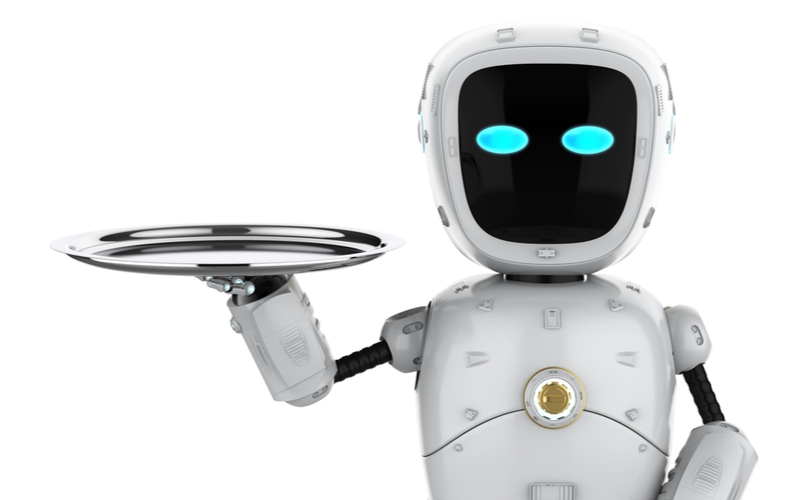From chatbots to hyper-personalised experiences to better understanding customers, AI and machine learning have been used in a variety of contexts to improve the customer experience. In 2022, the role of AI is expected to expand as enterprises become mature in its adoption.
More and more business leaders in Australia as well as consumers are becoming more comfortable with AI and building a level of trust in its ability to automate and enhance decision making capabilities for an organisation. Jason du Preez, general manager APAC for SugarCRM, observes, “We anticipate that in 2022, more Australian organisations will realise and materialise the benefits of AI, including addressing the need for speed, building the trust factor for organisations where they can help make better decisions, reducing blind spots, busy work and roadblocks”.
“Advanced AI will also handle customer relationships with more care and understanding, deliver more excellent knowledge of the new and now, and maintain CRM data relevancy”, he adds.
AI will continue to be one of the most dominant trends in CX for the foreseeable future. Businesses are feeling the pressure to provide faster, more accurate and more personalised service. Brands like Amazon and Uber have conditioned consumers to believe that they never have to wait. “In 2022 and beyond, Australian organisations will increasingly feel the pressure to respond to a lead in minutes, time to complete a Service Level Agreement will need to be highly accelerated and responding to a customer support question must be sufficiently quick to prevent wait times that evolve into a poor review”, says du Preez.
“Organisational models and technologies need to evolve to keep up with increasing speed-to-serve expectations. Sales, marketing, and service will need to operate as one team, with handoffs in seconds and back-and-forth responses in minutes. Data must be shared, and data-driven processes, priorities, next steps, and outlooks automated via AI”.
AI and the Employee Experience (EX)
One of the main areas AI is expanding into is EX. Michael Lawder, chief experience officer (CXO) at ASAPP, comments, “The Great Recession has (rightfully) put power into the hands of agents. Companies will look back at 2020-2021, quantify how expensive employee attrition has been on their operations, and look for ways to flatten the learning curve in the future. In past years, narratives around AI in CX have focused on efficiency gains or chatbots”.
In 2022, there will be an increased focus on AI in EX and how to overcome problems in maintaining an engaged, motivated and productive workforce. Unfortunately, a number of employees are facing burnout as a consequence. The results of several global surveys have indicated that employee burnout is rising.[i]
“Ongoing staffing demands show that chatbots have a place but are not delivering on the fullness of their promise. Instead of using AI strictly for self-service, AI will additionally be used to optimise the agent/employee experience, helping agents with load balancing, intent prediction, auto-response completion, real-time analytics, and more”.
“The pandemic has given rise to the remote and independent workforce. Now that contact center operations have enabled AI and desktop systems for digital supervision and collaboration, agents are empowered to be freelance agents. In 2022, businesses and brands will rely on these gig workers as the norm”, says Lawder.
Businesses are thinking of and adopting new approaches to work. One clear way to do this is to explore how artificial intelligence (AI) can help create a new future of work that’s more flexible, diverse and well-being-oriented than ever before.
Real-time customer insights
The ability to make fast and accurate decisions in real-time can have a tremendous impact on a customer’s experience. It means more relevant content, service options or choices can be presented to the customer in the moment they are interacting with the brand. This ability depends on the ability to collate, process and analyse the most recent data that is available.
“Most Australian organisations have only used AI for prediction. In 2022, they will start using AI to better understand customers here and now. Most companies have copious amounts of data, but the human brain is not wired to make sense of it to understand trends and find outliers in a given dataset”, says Rich Green, Chief Product Officer, SugarCRM.
Green ads, “AI assists the human brain by providing the “moving mouse” effect to target the data you need to act on. There are many “moving mouse” instances that, enabled by AI, provide tremendous value to sales, marketing, and service professionals. Take, for example, the business development representative that can either manually go through a list of 1200 leads or use AI to assist with generating an ideal customer profile to prioritise those to contact first”.
Hyper-personalisation
Personalisation is one of the most important aspects of creating a great customer experience. Today’s customers expect a personalised experience when dealing with brands. Lawder comments, “As more brands compete on customer service, personalisation will be leveraged in an attempt to deliver increased satisfaction and foster customer loyalty. We now have the technology to remember and adapt to customer preferences as agents and systems change across interactions”.
Hyper-personalised customer experiences driven by data analytics about current customers are difficult for competitors to imitate. To offer a personalised customer experience requires access to quality and relevant data. More importantly it requires the ability to act upon that data in real time or as close as possible to real-time at the moment an interaction or conversation is taking place with a customer.
AI’s potential ability to process vast amounts data in real time make it critical for creating hyper-personalised experiences.
“The importance of artificial intelligence (AI) in meeting even minimum customer expectations is undeniable in 2021”, according Margi Deinlein, customer insights manager for Talkdesk. “While a wide majority of enterprises recognise this ‘AI imperative’, there is still plenty of runway on the path to embracing it in a meaningful, transformative way.
“Until recently, many organisations had adopted a hopeful “watch and see” position on AI as they waited for the technology to reach maturity. That day has come. Today, AI solutions significantly improve customer experience and deliver cost savings, efficiencies and new opportunities for organisations. AI is now increasingly considered a necessity to compete effectively by delivering faster, more accurate customer service”.
[i] https://www.forbes.com/sites/forbestechcouncil/2021/11/08/how-ai-can-help-drive-your-employee-experience-strategy/?sh=4e7c0cd962f9


